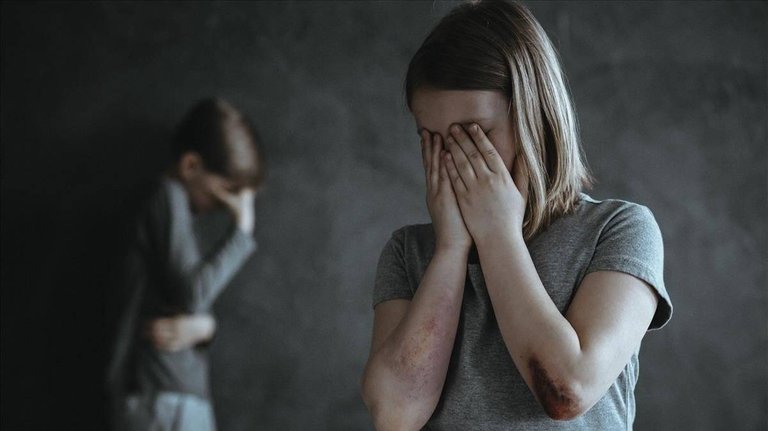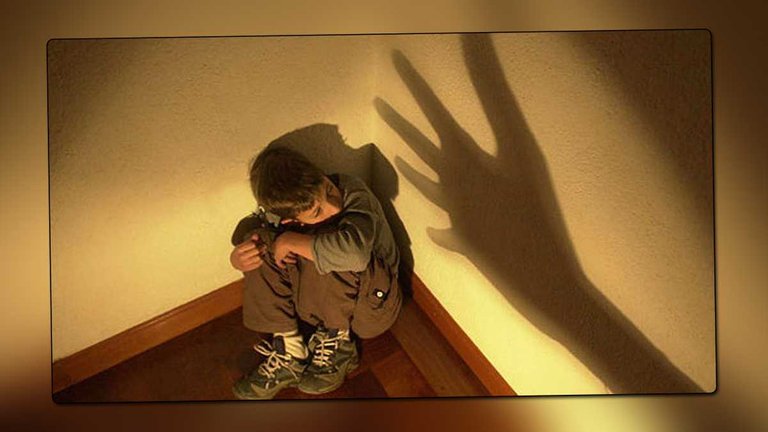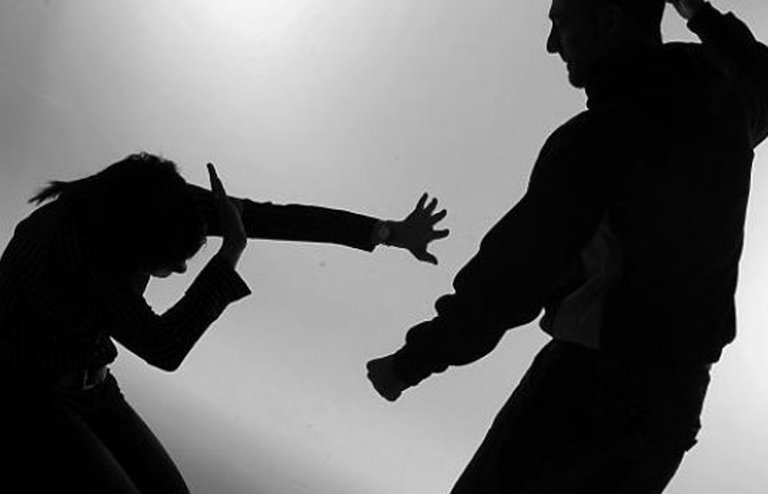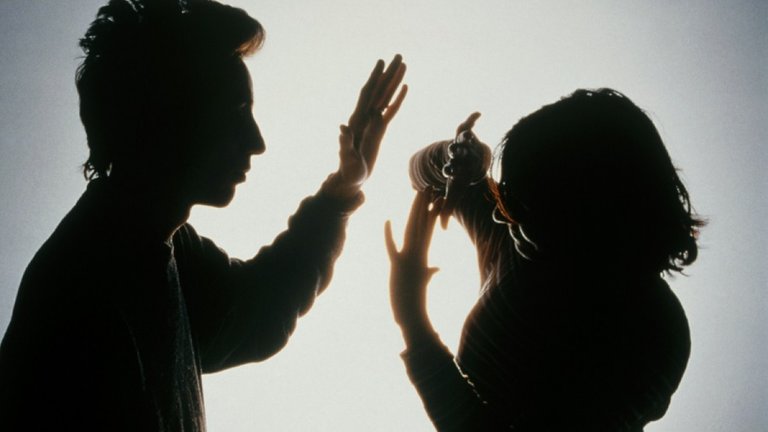Overcoming fear: A more than challenging story. [ENG/ESP]
(Edited)

I believe that in general terms we could all agree, in the first instance, with the concept of overcoming fears through confrontation. That is to say, through the way to overcome them by doing what we have to do when the shock of fear paralyzes us. Up to this point, we will all find a common ground to agree on. The key to the conflict with this premise, happens when violence is the central axis of terror. In other words, when the person becomes accustomed to the culture of fear, and does nothing more than try to survive. The following is an explanation of a really uncomfortable and extremely risky reality when it comes to making decisions.
In order to understand it well, the best way I can think of is to use a well-known example: an unfortunate and unfortunate anecdote. And that is part of my argument; one that I would hate to use to explain a reality that goes too unnoticed and is apparently insufficient for countless children and women (the primary targets of the executors of terror, as I call them) who have suffered from it for as long as they can remember: the habit of living in fear and making a life through this "upbringing".
Considero, que en líneas generales todos podríamos estar de acuerdo, en primeras instancias con el concepto de sobreponerse a los miedos a través del enfrentamiento. Es decir, mediante el modo de vencerlos haciendo los que nos toca hacer cuando el shock del temor nos paraliza. Hasta aquí, todos encontraremos un punto común para poder estar de acuerdo. La clave del conflicto con esta premisa, pasa cuando la violencia es el eje central del terror. Dicho de otra forma, cuando la persona se acostumbra a la cultura del miedo, y no hace más que intentar sobrevivir. A continuación, una explicación de una realidad realmente incómoda y sumamente riesgosa, cuando de tomar decisiones se trata.
Para poder entenderlo bien, la mejor forma que se me ocurre es, empleando un ejemplo conocido: una anécdota infortunada y desgraciada. Y es que, ése es parte de mi argumento; uno que detestaría usar para explicar una realidad que pasa demasiado desapercibida y que aparentemente es insuficiente para innumerables, niños, niñas y mujeres, (éstos, objetivos primarios de los ejecutores del terror. Como yo les llamo) que la padecen desde que tienen memoria: la costumbre de vivir con miedo y hacer vida a través de esa "crianza".

In philosophy, there is a principle, which in many ways, science has made its own; and it is nothing more than "Ockham's razor". This precept explains, in an absurdly synthesized and simplistic way, that "the simplest explanation is almost always (statistically) the closest to the truth". In other words, to understand the magnitude of the damage that millions of victims around the world experience and literally live through as I write (and you read this post) it is necessary to come up with a simple explanation: are the victims at some point guilty by fear and omission of what is happening, or is it simpler: is it due to the culture of fear? Here I am referring to the habit, the "usual", the normal; the common denominator: the habit of seeing, consuming, feeling, manifesting and surrounding oneself with violence.
And the fact is that, through much anecdotal evidence, I have been able to collect different testimonies of women and girls, who, when recalling when the "assimilation" of violence in their lives began, ineluctably, they think of childhood. In episodes where, mostly, a male member of their families physically and disproportionately assaulted another member, in obvious physical appearance weaker just because he could and because in the words of these women and girls, -it was the way to demonstrate power and control". Or as we are quicker to distinguish it, "to be the man of the house". And please don't tell me you haven't come across some good-for-nothing lout who touts these "ideals" of manhood...
Now, women, boys and girls, along with the elderly population, are perhaps the most susceptible to abuse and harm that can exist in a population sample. Thus, the question remains: is it a habit of fear to live with violence or simply due to oppression? And I think part of that habit is explained by upbringing. I said, I had an anecdote that would help with this and it does. A father repeatedly beats his wife in front of their two daughters. One 9 and the other 4 years old respectively. The older of the two instinctively protects your younger sister from seeing the scene or suffering any physical harm.
En filosofía, existe un principio, que en muchas maneras, la ciencia ha hecho suya; y no es más que "La navaja de Ockham". Este precepto, explica de un modo absurdamente sintetizado y simplista, que "la explicación más simple, casi siempre (estadísticamente) es la más cercana a la verdad". Puesto en otras palabras, para entender la magnitud del daño por el que millones de víctima en el mundo entero, suelen experimentar y literalmente vivir, mientras escribo (y usted lee este post) es necesario dar con una sencilla explicación: ¿son las víctimas, en algún punto culpables por miedo y omisión de los que sucede, o es más simple: es debido a la cultur del miedo? Vamos, que aquí me refiero al hábito, a lo "usual", la normal; el común denominador: la costumbre de ver, consumir, sentir, manifestar y rodearse de violencia.
Y es que, a través de mucha evidencia anecdótica, he podido recoger distintos testimonios de mujeres y niñas, que al recordar cuándo empezó la "asimilación" de la violencia en sus vidas, ineludiblemente deparan en la niñez. En episodios donde, mayoritariamente, un miembro masculino de sus familias agredía en desventaja física y desproporcional a otro miembro, en evidente apariencia física más débil sólo porque podía y porque en palabras de esas mujeres y niñas, ·era el modo de demostrar poder y control". O como solemos distinguirlo más rápidamente, "ser el hombre de la casa". Y, por favor, no me digan que no han dado con algún patán, bueno para nada, que pregone estos "ideales" de hombría...
Ahora bien, las mujeres, niños y niñas, junto a la población de tercera edad, son quizá, la parte más susceptible al maltrato y al daño que puedan existir en una muestra poblacional. De este modo, queda la pregunta en el aire de: ¿es una costumbre del miedo vivir con violencia o sencillamente debido a la opresión? Y creo que parte de ese hábito se explica por la crianza. Dije, que tenía una anécdota que ayudaría con esto y así es. Un padre golpea repetidas veces a su esposa delante de sus dos hijas. Una de 9 y la otra de 4 años de edad respectivamente. La mayor de las dos, instintivamente protege a tu hermanita más pequeña de no ver la escena ni de sufrir algún daño físico.

I continue, the years go by, "drama" becomes habit and "norm" in that "home", the older girl grows up, she is a teenager, she starts to live the part of life where things usually get a little complicated: relationships with boys, romantic unions, lack of sexual experience and above all lack of character and human values. Because after all, it is the only thing she really knew: abuse, indolence before pain and cruel situations, no communication in key issues with adults, and above all: endemic machismo by figures of moral and sentimental authority for her.
So, as the years went by, she continued to endure, "partner to partner" mistreatment. She is now an adult and there is not a weekend (statistically, this is where most generalized violence tends to occur) that she does not fear and enter into states of panic and horror, which she tenderly conceals with a smile and an apparent "strength" that conceals the helplessness and injustice, of which she is a victim and with the aggravating factor of feeling guilty for the spiral in which she finds herself.
The "simplest explanation is the best approximation to the truth," remember? In this sense, what is the truth to violence and the circle of horror? Is it women who systematically get involved in toxic and dangerous relationships? Or, on the other hand, is it an extremely tangled combination of an upbringing in harmful, distorted, cruel and macho human values plus elements of insecurity and ignorance towards a group that has historically been exploited, humiliated, annihilated and to top it off, legally ignored? Because let's be frank, how many of us do not know firsthand a story of mistreatment, and do nothing? Arguing that "it is not our problem what happens in a couple", as if that justification could really bring peace and solidarity.
Continúo, los años pasan, "el drama" se hace hábito y "norma" en ese "hogar", la chica mayor crece, es adolescente, empieza a vivir la parte de la vida donde usualmente las cosas se complican un poco: relaciones con chicos, uniones sentimentales, tener falta de experiencia sexual y sobre todo de carácter y valores humanos. Porque después de todo, es lo único que realmente conocía: el maltrato, la indolencia antes el dolor y las situaciones crueles, nula comunicación en temas claves con adultos, y sobre todo: el machismo endémico por parte de figuras de autoridad moral y sentimental para ella.
Así que, los años transcurrieron, siguió soportando, "pareja a pareja" los maltratos. Se "normalizaron" esos tratos, es ahora adulta y no hay un fin de semana (estadísticamente, es donde más violencia generalizada suele suceder) que no tema y entre en estados de pánico y horror, que tiernamente disimula con una sonrisa y una aparente "fortaleza" que disimula la indefensión y la injusticia, de la cual es víctima y con el agravante de sentirse culpable por al espiral en la que se encuentra.
La "explicación más simple es la mejor aproximación a la verdad", ¿recuerdan? En este sentido, ¿qué es la verdad para la violencia y el círculo del horror? ¿Son las mujeres quienes sistemáticamente se involucran en relaciones tóxicas y peligrosas? o, por otro lado, ¿es una combinación extremadamente enmarañada entre una crianza en valores humanos dañinos, distorsionados, crueles y machista más elementos de inseguridad y desconocimiento hacia un grupo que históricamente ha sido explotado, humillado, aniquilado y por si fuera poco, ignorado legalmente? Porque seamos francos, ¿cuántos de nosotros no conocemos de primera mano una historia de maltrato, y no hacemos nada? Arguyendo que "no es nuestro problema lo que suceda en pareja", como si esa justificación pudiera realmente brindar paz y solidaridad.

I do not intend to elevate myself to a category of specialty or hero, if not through the best weapon that the human being possesses: reason, to deliver elements that approach the essential human character: the fight for the less favored. That as we all know, could not be other than women of all ages, and senior citizens, as well as children. We cannot continue to turn a blind eye when the "enemy" sleeps next to us. When it is the neighbor who seems to be a "good guy", or a relative we know too well to be conveniently blind to a reality that is a complete chaos; no matter where in the world we observe or take a study sample.
The violence and the circle of abuse is serious, notorious and, above all, alarming. And more and more cases and tragedies are occurring. Not so, the timely responses to not only plant strong opposition but to eradicate it with absolute forcefulness and prevent the most common evil that exists: the harm to those who cannot or are unable to defend themselves, to defend themselves. It is a very hard and complicated fight, but someone has not only to denounce it, but to act accordingly, and not to be a participant by omission (accomplice) of one of the true symptoms of collective illness such as violence, followed also by suicide...
No pretendo, elevarme a una categoría de especialidad o héroe, si no a través de la mejor arma que posee el ser humano: la razón, entregar elementos que acercan al carácter humano esencial: la lucha por el menos favorecido. Que como todos sabemos, no podría ser otro que mujeres de todas las edades, y personas de la tercera edad; además de niños y niñas. No se puede seguir continuando con lo de la vista gorda, cuando el "enemigo" duerme a nuestro lado. Cuando es el vecino que parece un "buen sujeto", o un familiar que conocemos demasiado bien para ser convenientemente ciegos ante una realidad que es un completo caos; sin importar en lugar del mundo donde se observe o se coja una muestra de estudio.
La violencia y el círculo que encierra el maltrato es grave, notoria y sobre todo, alarmante. Y cada vez más, son más los casos y más las tragedias. No así, las respuestas oportunas para no solo plantar oposición férrea sino erradicarla con absoluta contundencia y evitar que la maldad más común que exista: el daño a quien no puede o está complicado para defenderse, se defienda. Es una lucha durísima complicada pero alguien tiene no solo que denunciarla, sino actuar en consecuencia, y no ser un participante por omisión (cómplice) de una de los verdaderos síntomas de enfermedad colectiva como lo es la violencia, seguida también del suicidio...
0
0
0.000
Congratulations @freakshow90! You have completed the following achievement on the Hive blockchain and have been rewarded with new badge(s):
Your next target is to reach 50 upvotes.
Your next target is to reach 800 upvotes.
Your next target is to reach 50 replies.
You can view your badges on your board and compare yourself to others in the Ranking
If you no longer want to receive notifications, reply to this comment with the word
STOPTo support your work, I also upvoted your post!
Check out the last post from @hivebuzz:
Support the HiveBuzz project. Vote for our proposal!